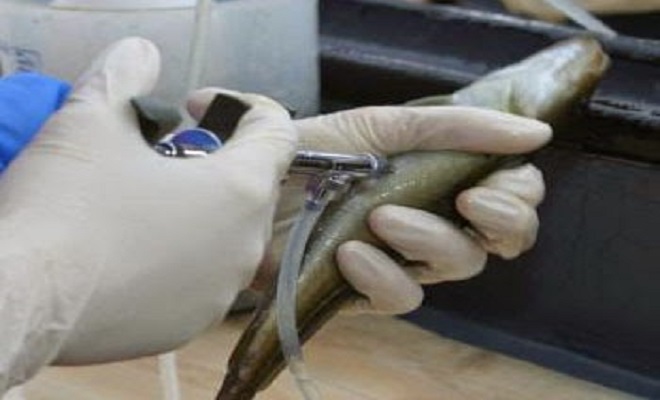 Activist Post
Activist Post
Health
Vaccinated Farmed Fish Have Side Effects
by Catherine J. Frompovich, via Activist Post.com:
Be forewarned, please, that this will not be very pleasant reading, especially if readers eat farm-raised fish and, in particular, salmon, a highly-farm-raised fish. “Wild-caught” need not apply.
During my years of research, I’ve come across all sorts of information, studies, and papers relating to animal vaccines, but this one sort of “takes the cake,” in my opinion. Farmed fish are vaccinated because, according to the Norwegian School of Veterinary Science (NSVS),
Modern fish farming is highly industrialized and relies heavily upon effective vaccines to minimize losses caused by infectious diseases. [1]
Want to know how to vaccinate a fish?
Please see slide 4 of the 28-slide presentation, “Side-effects of vaccination: an example of the conflict between guidelines and real life.”
It looks like a PowerPoint presentation made by Trygve T. Poppe and Gunvor Knudsen of the NSVS.
However, before I go any further about fish vaccinations, readers ought to know that there’s a 404-page book detailing the science of fish vaccinations titled—what else but—“Fish Vaccination,” May 2014 published by John Wiley & Sons, Inc. The book obviously is a guide to sustainable bio-production, disease prevention to reduce losses by employing the use of antimicrobials and vaccinations, which are considered effective in stimulating the immune system of fish.
Did anyone ask the fish? That may sound like an unlikely and stupid question, but in the NSVS PowerPoint presentation, slide 10 states,
Over the years fish farmers in Norway (and strangly [sic] enough to a very limited extent in other countries) have experienced severe and unacceptable side-effects in vaccinated fish.
[Hmmm! I could have told them to expect that; it’s a no brainer!] [CJF emphasis added]
There’s a photograph of a fish carcass with some sort of black “diseased-like” flesh inside the abdominal cavity. Check it out for yourself here (No. 12) .
The two slides following No. 12 show other fish health problems such as generalized granulomatous peritonitis and abdominal lesions affecting internal organs that often have heavy melanization, meaning causing tissue to turn dark or black.












